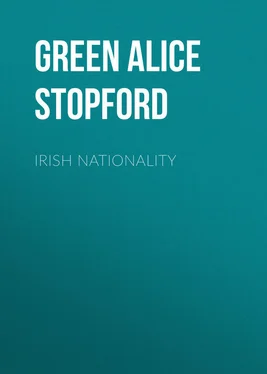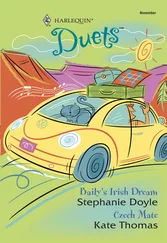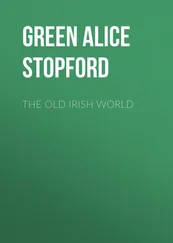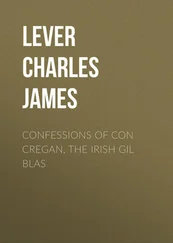Alice Green - Irish Nationality
Здесь есть возможность читать онлайн «Alice Green - Irish Nationality» — ознакомительный отрывок электронной книги совершенно бесплатно, а после прочтения отрывка купить полную версию. В некоторых случаях можно слушать аудио, скачать через торрент в формате fb2 и присутствует краткое содержание. Жанр: literature_20, foreign_antique, foreign_prose, Историческая проза, на английском языке. Описание произведения, (предисловие) а так же отзывы посетителей доступны на портале библиотеки ЛибКат.
- Название:Irish Nationality
- Автор:
- Жанр:
- Год:неизвестен
- ISBN:нет данных
- Рейтинг книги:5 / 5. Голосов: 1
-
Избранное:Добавить в избранное
- Отзывы:
-
Ваша оценка:
- 100
- 1
- 2
- 3
- 4
- 5
Irish Nationality: краткое содержание, описание и аннотация
Предлагаем к чтению аннотацию, описание, краткое содержание или предисловие (зависит от того, что написал сам автор книги «Irish Nationality»). Если вы не нашли необходимую информацию о книге — напишите в комментариях, мы постараемся отыскать её.
Irish Nationality — читать онлайн ознакомительный отрывок
Ниже представлен текст книги, разбитый по страницам. Система сохранения места последней прочитанной страницы, позволяет с удобством читать онлайн бесплатно книгу «Irish Nationality», без необходимости каждый раз заново искать на чём Вы остановились. Поставьте закладку, и сможете в любой момент перейти на страницу, на которой закончили чтение.
Интервал:
Закладка:
The enterprise of the sea-rovers and the merchant settlers created on Irish shores two Scandinavian "kingdoms" – kingdoms rather of the sea than of the land. The Norsemen set up their moot on the Mound over the river Liffey (near where the Irish Parliament House rose in later days), and there created a naval power which reached along the coast from Waterford to Dundalk. The Dublin kingdom was closely connected with the Danish kingdom of Northumbria, which had its capital at York, and formed the common meeting-ground, the link which united the Northmen of Scandinavia and the Northmen of Ireland. A mighty confederation grew up. Members of the same house were kings in Dublin, in Man, and in York. The Irish Channel swarmed with their fleets. The sea was the common highway which linked the powers together, and the sea was held by fleets of swift long-ships with from ninety to a hundred and fifty rowers or fighting men on board. Dublin, the rallying-point of roving marauders, became the centre of a wide-flung war. Its harbour, looking east, was the mart of the merchant princes of the Baltic trade: there men of Iceland and of Norway landed with their merchandise or their plunder.
"Limerick of the swift ships," "Limerick of the riveted stones," the kingdom lying on the Atlantic was a rival even to Dublin; kings of the same house ruled in Limerick and the Hebrides, and their fleets took the way of the wide ocean; while Norse settlements scattered over Limerick, Kerry and Tipperary, organised as Irish clans and giving an Irish form to their names, maintained the inland trade. Other Munster harbours were held, some by the Danes, some by the Irish.
The Irish were on good terms with the traders. They learned to build the new ships invented by the Scandinavians where both oars and sails were used, and traded in their own ports for treasures from oversea, silken raiment and abundance of wine. We read in 900 of Irishmen along the Cork shores "high in beauty, whose resolve is quiet prosperity," and in 950 of "Munster of the great riches," "Munster of the swift ships."
On the other hand, the Irish never ceased from war with the sea-kings. From the time of Thorgils, high-kings of Tara one after another led the perpetual contest to hold Ireland and to possess Dublin. They summoned assemblies in north and south of the confederated chiefs. The Irish copied not only the Scandinavian building of war-ships, but their method of raising a navy by dividing the coast into districts, each of which had to equip and man ten ships, to assemble at the summons for the united war-fleet. Every province seems to have had its fleet. The Irish, in fact, learned their lesson so well that they were able to undertake the re-conquest of their country, and become leaders of Danish and Norse troops in war. The spirit of the people rose high. From 900 their victories increased even amid disaster. Strong kings arose among them, good organisers and good fighters, and for a hundred years one leader followed hard on another. In 916, Niall, king of Tara, celebrated once more the assembly of Telltown, and led southern and northern O'Neills to the aid of Munster against the Gentiles, directing the men of Leinster in the campaign – a gallant war. Murtagh, king of Ailech or Tirconnell, smote the Danes at Carlingford and Louth in 926, a year of great danger, and so came victorious to the assembly at Telltown. Again, in 933, he defeated the "foreigners" in the north, and they left two hundred and forty heads, and all their wealth of spoils. In 941 he won his famous name, "Murtagh of the Leather Cloaks," from the first midwinter campaign ever known in Ireland, "the hosting of the frost," when he led his army from Donegal, under shelter of leather cloaks, over lakes and rivers frozen by the mighty frost, round the entire circuit of Ireland. Some ten years later, Cellachan, king of Cashel, took up the fight; with his linen-coated soldiers against the mail-clad foreigners, he swept the whole of Munster, capturing Limerick, Cork, Cashel and Waterford, and joining their Danish armies to his own troops; till he closed his campaign by calling out the Munster fleet from Kinsale to Galway bay, six or seven score of them, to meet the Danish ships at Dundalk. The Norsemen used armour, and rough chains of blue iron to grapple the enemies' ships, but the Irish sailors, with their "strong enclosures of linen cloth," and tough ropes of hemp to fling over the enemies' prows, came off victorious. According to the saga of his triumph, Cellachan called the whole of Ireland to share in the struggle for Irish freedom, and a fleet from Ailech carried off plunder and booty from the Hebrides. He was followed by Brian Boru. "Ill luck was it for the Danes when Brian was born," says the old saga, "when he inflicted not evil on the foreigners in the day time he did it in the next night." From beyond the Shannon he led a fierce guerrilla war. Left with but fifteen followers alive, sleeping on "hard knotty wet roots," he still refused to yield. "It is not hereditary to us," he said, "to submit." He became king of Munster in 974, drove out the Danish king from Dublin in 998, and ruled at last in 1000 as Ardri of Ireland, an old man of sixty or seventy years. In 1005 he called out all the fleets of the Norsemen of Dublin, Waterford, Wexford, and of the men of Munster, and of almost all of the men of Erin, such of them as were fit to go to sea, and they levied tribute from Saxons and Britons as far as the Clyde and Argyle.
Конец ознакомительного фрагмента.
Текст предоставлен ООО «ЛитРес».
Прочитайте эту книгу целиком, купив полную легальную версию на ЛитРес.
Безопасно оплатить книгу можно банковской картой Visa, MasterCard, Maestro, со счета мобильного телефона, с платежного терминала, в салоне МТС или Связной, через PayPal, WebMoney, Яндекс.Деньги, QIWI Кошелек, бонусными картами или другим удобным Вам способом.
Интервал:
Закладка:
Похожие книги на «Irish Nationality»
Представляем Вашему вниманию похожие книги на «Irish Nationality» списком для выбора. Мы отобрали схожую по названию и смыслу литературу в надежде предоставить читателям больше вариантов отыскать новые, интересные, ещё непрочитанные произведения.
Обсуждение, отзывы о книге «Irish Nationality» и просто собственные мнения читателей. Оставьте ваши комментарии, напишите, что Вы думаете о произведении, его смысле или главных героях. Укажите что конкретно понравилось, а что нет, и почему Вы так считаете.












